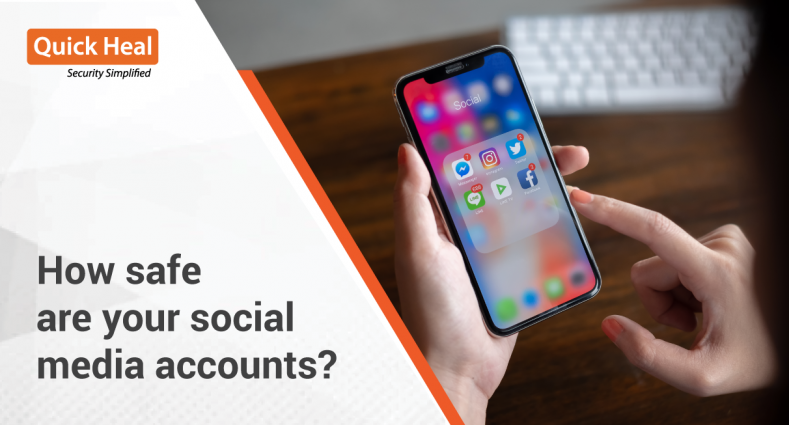Answer these questions to find out how safe your social media profiles are

Unless you’re a hermit who lives under a rock, you probably use social media in some form or the other. You’re not alone; recent statistics reveal that you’re among 3.5 billion social media users worldwide. And it’s a rapidly increasing number that already constitutes half the world’s population.
Social media is a beast like no other. It incentivizes information sharing by continuocybersecuusly providing an information stream about your friends, relatives, co-workers, and acquaintances. That is an entire treasure trove of data and has now become an integral part of the world we live in. That’s why, irresponsible usage of social media can be hugely dangerous, affecting lives and populations.
Hence, if you use Facebook, Instagram, WhatsApp, Twitter, or any other social media service, it’s your responsibility to ensure that you use it responsibly and keep it safe. Remember, your account ties back to you and you are responsible for any activity from that account.
Let’s run a quick check on how safe your social media accounts are. Answer the questions below and get a sense of how hackers can gain access to your data:
Who can access your account?
In an ideal world, you, and only you, should be able to access your social media accounts. But we sometimes do share accounts with family and loved ones and that can be dangerous. Apart from that, we also sometimes integrate third-party applications with our social media accounts and give them permissions to our account. Are they all safe? It’s best to do a thorough audit of your social media login credentials with one question acting as the starting point – who can access your account?
Do you use multi-factor authentication?
It’s a topic we keep harping on about at Quick Heal but there’s a good reason for that. Using multiple ways to authenticate yourself can hugely reduce your risk of getting hacked – Microsoft even stated that multi-factor authentication (MFA) could reduce the risk of identity compromise by 99.9 percent!
Almost all social media websites now offer two-factor authentication. Enable it everywhere you have an account: Facebook, Twitter, Instagram, and ensure you keep your devices close to you when you log in.
Do you have the same password for all your social media accounts?
If no, good. If yes, then, you’ve just become a sitting duck for hackers.
What’s important to understand here is that even if you have a strong password, using it everywhere you have an account is unsafe. If there’s a data breach at even one of the services you use, you are in danger of losing access to all your accounts. It’s more common than you think and user credentials go for big bucks on the dark web.
Yes, it’s tough to remember different passwords for different websites, but consider the damage control you’ll have to do if your accounts get compromised.
Do I have secure protection on the devices from which I access social media?
You probably use social media from all your devices, whether it’s your personal laptop or mobile phone. Ensure that you are protected on all devices with updated and powerful security solutions that will prevent hacking attempts.
Quick Heal has you covered in this respect. Whether you’re using a Windows laptop (Quick Heal Internet Security), or Android Mobile (Quick Heal Total Security for Android), or just need a total home network security solution, Quick Heal has security solutions for all platforms and devices.
No Comments, Be The First!